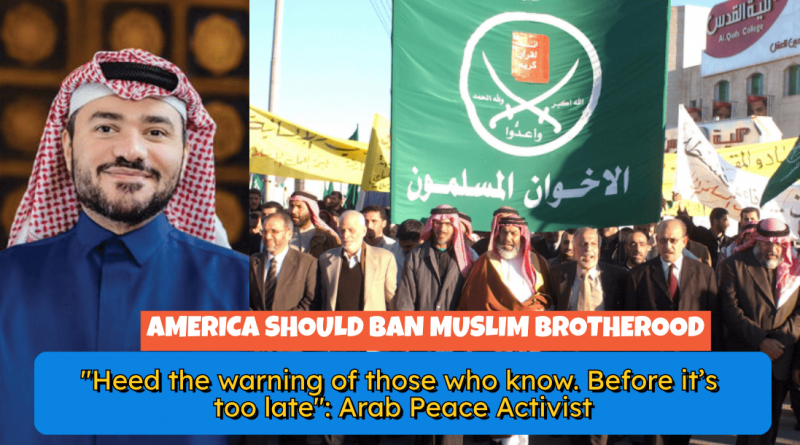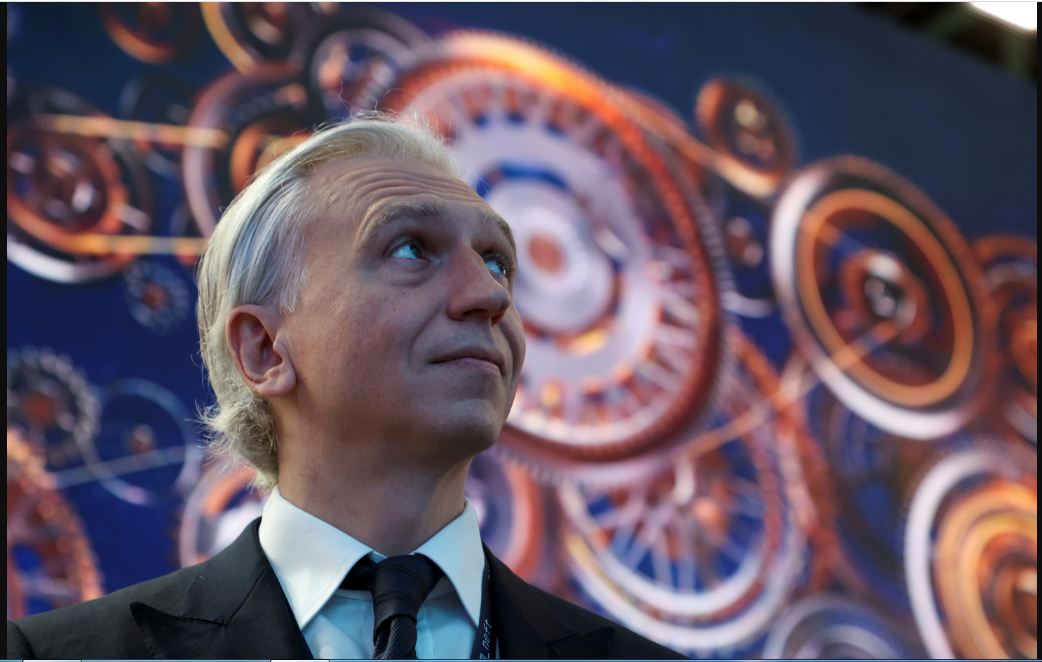Ban the Muslim Brotherhood: A Plea from Arab Voices for Reform
The Muslim Brotherhood is a shape-shifting ideology. Sometimes it appears as social activism, other times as religious outreach.
Loay Al-Shareef, an Emirati peace activist and respected voice in the Arab reformist movement, recently issued a stark warning to American campuses and political leaders: the Muslim Brotherhood must be banned before its toxic ideology causes further harm.
His message is not one of political convenience or ideological vengeance. It is a cry rooted in personal experience, cultural insight, and a sincere concern for both the Arab world and the West.
Al-Shareef has visited more than 15 American universities, speaking alongside fellow Arab Muslim activists who once lived under the shadow of the very ideology they now confront. His mission is clear—to expose the dangers of the Muslim Brotherhood and its military wing, Hamas, before more young minds are seduced by the movement’s deceptively noble slogans.
He is often asked: Why this relentless warning? His answer is powerful in its simplicity: “Because we know their evil better than anyone else on the planet.”
This isn’t abstract theory or secondhand knowledge. Many of these reformers were once indoctrinated with the Brotherhood’s ideas—raised on narratives of victimhood, infused with theological justifications for hatred, and programmed to see the world through a rigid binary of believers versus enemies. But some, like Al-Shareef, broke free. And in that awakening, they saw not just the lie—they saw the machinery behind it.
The Muslim Brotherhood is a shape-shifting ideology. Sometimes it appears as social activism, other times as religious outreach. But in moments of global attention—especially during crises in Gaza or Jerusalem—it wears the mask of “resistance” and “liberation.” That’s when slogans like “Free Palestine” or “From the river to the sea” are weaponized. To the uninformed, they echo human rights and justice. To those who know the ideology’s roots, they are coded calls for extermination and destruction.
Al-Shareef’s perspective forces an uncomfortable but necessary re-examination. The West, particularly liberal institutions in the U.S., often romanticize political Islamists as representatives of “authentic” Muslim identity. Yet the reality is far more complex—and dangerous. The Muslim Brotherhood has long perfected the art of double-speak: peace in English, militancy in Arabic; democracy in the West, theocracy at home.
The tragedy is that many Western politicians and diplomats continue to give these preachers a pass. Whether out of ignorance, fear of being labeled “Islamophobic,” or naïve idealism, this tolerance is enabling the very ideologies that fuel radicalization, antisemitism, and violence.
Al-Shareef is not anti-Palestinian. He, like many in the Arab world, supports justice and dignity for Palestinians. But he draws a line between a genuine pursuit of peace and the manipulation of that cause by Islamist actors who have hijacked it for their own ideological war.
His call to ban the Muslim Brotherhood in America is not just about foreign policy. It’s about safeguarding the social fabric of democratic societies. It’s about recognizing antisemitism—not as a political position, but as a crime with deadly consequences. And it’s about listening to those who have walked through the fire and come out with scars and clarity.
The next time a “Free Palestine” protest escalates into violence, as many unfortunately have in recent months, remember this warning: the danger isn’t just spontaneous—it’s ideological, well-organized, and globally connected.
Loay Al-Shareef’s message to America is not anti-Muslim. It’s anti-extremist. It’s a call for nuance, courage, and truth in a time when too many prefer slogans to substance.
The West must listen to those who know the mask behind the movement. Before it’s too late.



